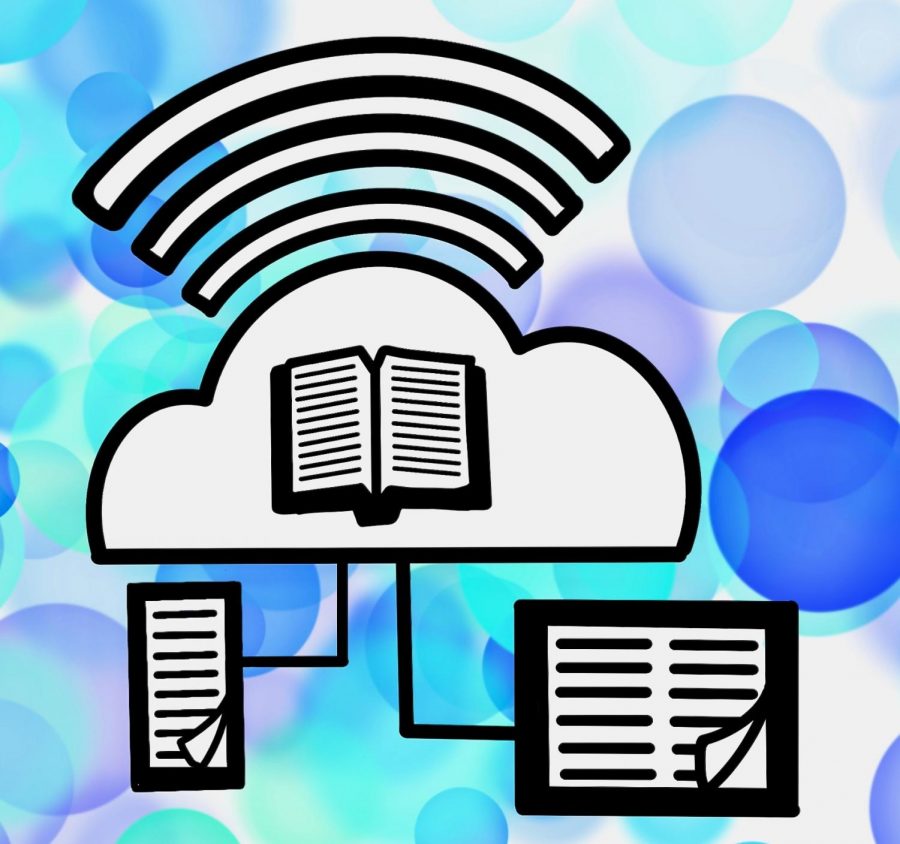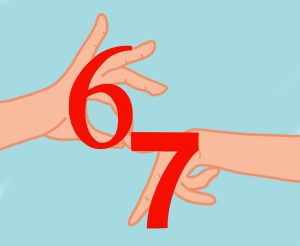Give e-books a chance: you may be surprised
Photo provided by Taryn Morris
E-books can easily be accessed from a number of devices, including phones, tablets, and even computers.
Dec 8, 2020
Disdained by book purists since their creation, E-books are often considered lesser to print books, not as real. I won’t deny that there’s something incredibly special about turning the pages of a paper book, but this attitude towards digital texts cannot continue. E-books can bring massive advantages over print books and are just as valid as a way of reading.
One of the main issues with print books is that they take up space: lovely if you want to display your collection of novels, but irritating in practicality. Simply put, it’s inconvenient to lug around a book all day. You have to carry a bag to store it or keep it tucked under an elbow, and you worry about leaving it behind. It’s another item to juggle and a bulky object that requires space to store, space to set down and space to read.
Space is not a concern with E-books. Refreshingly convenient, E-books provide access to millions of stories, all from the same pocket-sized rectangle that you likely carry with you anyway. A click to open an app is all it takes to resume your reading, and you don’t even have to worry about bookmarking your page.
Reading E-books also offers several major features that are much more difficult to do with prints, specifically, the convenience of a dictionary. Don’t know a word? Highlight it, and Google tells you what it means. Reading ease is so much greater when you don’t have to be pulled out of your immersion by a trip to the computer, and you learn vocabulary much faster. No more incorrect assumptions based on context clues or confusion because you have no idea what that word means. The dictionary is built-in. You don’t have to worry about defacing a book, either. Annotations and highlights are easy to make and remove, and unlimited bookmarks and an interactive table of contents make navigation easy.
If you don’t know where to start with reading E-books, the Kindle, Nook and Libby apps are a good place to start. Kindle and Nook apps are services provided by Amazon and Barnes and Noble respectively. They both require purchases to read a book but also offer unlimited access to the text once bought. They have a wide variety of titles available, practically equal to the number of titles available in print.
Kindle offers titles self-published by their authors that are often not even available in print. These self-published works also tend to cost less, and there are some real gems to be found.
The final app, Libby, is the one I use most often. Working with local public libraries, it gives completely free access to thousands of books, provided you have a library card. The app works on the same principles a library does; a book may take time before it is available to borrow and must be returned after a certain period (without the worries of late dues, as books are returned automatically). All the apps and software to read E-books can be easily downloaded for free on phones, tablets and even computers.
Give E-books a try, and at the very least, treat them with the respect they deserve.








Nabila Wilson • Dec 13, 2020 at 7:49 pm
Love this! E-books are wonderful 🙂
Eric • Dec 9, 2020 at 5:00 pm
Sorry, but I tried them, and they aren’t the real deal. Too much eye strain.